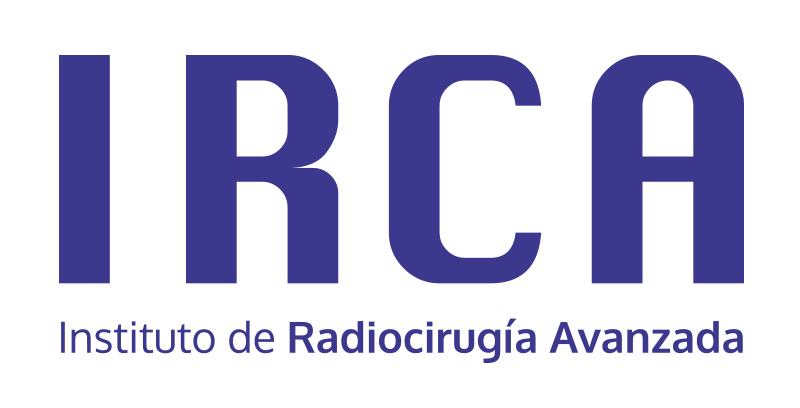- Home
- Sin categoría
- Foods to avoid if you have trigeminal neuralgia
Foods to Avoid for Trigeminal Neuralgia: A Comprehensive Approach Where Diet Plays a Vital Role
Trigeminal neuralgia is a chronic condition that causes sudden, intense facial pain, significantly affecting the quality of life of those who suffer from it.
💥If you would like to learn more about how to effectively and ambulatorily end the pain caused by trigeminal neuralgia, you can find very relevant information here:
• How trigeminal neuralgia is treated with ZAP-x, and how to end opioid dependence
• Learn about the latest advances in treating trigeminal neuralgia to improve your quality of life
As part of a comprehensive approach to symptom management, it is crucial to consider dietary habits.
In this post, we will explore foods to avoid for trigeminal neuralgia and how avoiding these triggers can help better manage this condition.
⚡Why Is Diet Important in Trigeminal Neuralgia?
The traditional management of trigeminal neuralgia depends not only on medical and pharmacological treatments, but also on nutrition.
Recent studies have shown that certain foods can trigger or aggravate the symptoms of trigeminal neuralgia due to their inflammatory or neurostimulatory properties.
Below is a list of foods that patients with trigeminal neuralgia should avoid.
What products should we consider prohibited foods for trigeminal neuralgia?
🌶️Spicy foods
Spicy foods contain capsaicin, a component that can stimulate nerve endings and exacerbate facial pain.
Capsaicin is an active chemical compound responsible for the burning or itching sensation we experience when consuming these foods. This compound binds to pain receptors in the mouth and other areas of the body, triggering the release of neurotransmitters that send pain signals to the brain.
Therefore, it is advisable to avoid:
- Hot peppers
- Chili peppers
- Foods containing hot sauces
☕Caffeine
Caffeine is a well-known stimulant that can increase nervous activity and potentially trigger episodes of trigeminal neuralgia.
It acts as a central nervous system stimulant by blocking the action of a neurotransmitter called adenosine. Adenosine normally promotes relaxation and sleep by inhibiting neuronal activity.
By blocking adenosine, caffeine increases the release of other neurotransmitters, such as dopamine and norepinephrine, which elevate alertness, increase heart rate, and promote greater nervous system excitability.
In people with trigeminal neuralgia, this increase in nerve activity can be problematic.
Caffeine may:
Increase Nerve Sensitivity: By raising nerve excitability, caffeine may make the trigeminal nerve more susceptible to firing painful impulses.
Stimulate Pain: Caffeine-induced nerve hyperactivity may trigger pain episodes or make trigeminal neuralgia episodes more frequent and severe.
Lower Pain Threshold: Increased nerve activity can lower the pain threshold, causing stimuli that would normally be harmless to be perceived as painful.
For these reasons, it is advisable for people with trigeminal neuralgia to limit or avoid caffeine consumption.
To minimize the risk of exacerbating symptoms, it is best to limit or avoid consumption of:
- Coffee
- Tea
- Energy drinks and caffeinated soft drinks
🧁Refined Sugars and Processed Foods
High consumption of refined sugars and processed foods can contribute to systemic inflammation, which could aggravate the symptoms of trigeminal neuralgia.
These would be the mechanisms:
Inflammatory response: Consumption of refined sugars causes rapid spikes in blood glucose levels, which can trigger an inflammatory response in the body. Chronic inflammation can sensitize nerves, including the trigeminal nerve, exacerbating episodes of pain.
Production of pro-inflammatory cytokines: Processed foods high in refined sugars can increase the production of pro-inflammatory cytokines such as interleukin-6 (IL-6) and tumor necrosis factor alpha (TNF-α). These inflammatory molecules can contribute to systemic inflammation and neuropathic pain.
Oxidative Stress: A diet high in refined sugars and processed foods can increase oxidative stress, which damages cells and tissues. Oxidative stress can also negatively affect nerves, worsening the symptoms of trigeminal neuralgia.
Intestinal Dysbiosis: Refined sugars and processed foods can alter the balance of the gut microbiota, a condition known as dysbiosis. Dysbiosis can influence systemic inflammation and central nervous system function, including the trigeminal nerve.
These combined effects can make the nervous system more susceptible to painful stimuli and increase the frequency and severity of trigeminal neuralgia episodes.
For these reasons, patients with trigeminal neuralgia are advised to avoid or limit their consumption of refined sugars and processed foods such as:
- Sugary snacks and sweets
- Sugary soft drinks
- Foods designed to be easy and quick to prepare and consume, such as packaged snacks, fast food, and instant soups.
🍬Artificial Sweeteners
Some artificial sweeteners, such as aspartame, have been associated with increased nerve sensitivity.
Aspartame, commonly found in diet drinks and sugar-free products, has been linked to increased nerve sensitivity due to its ability to stimulate nerves.
Although the scientific evidence is inconclusive, some studies suggest that aspartame may affect nerve function and increase pain perception in sensitive individuals.
In the case of trigeminal neuralgia, aspartame consumption could potentially worsen symptoms by increasing the excitability of the trigeminal nerve. This is because aspartame may interfere with nerve signal transmission and increase the response to pain.
Therefore, it is advisable to avoid:
- Diet soft drinks
- Sugar-free gum
- Products labeled “sugar-free” that contain artificial sweeteners
🍸Alcohol
Alcohol can interfere with nerve function and increase the risk of trigeminal neuralgia flare-ups. It is recommended to minimize or eliminate alcohol consumption.
The reasons:
Nerve Sensitivity: Alcohol consumption can increase nerve sensitivity, including the trigeminal nerve. This can make pain episodes more frequent and severe.
Neurotransmitter Alteration: Alcohol affects the functioning of neurotransmitters in the brain, such as glutamate and GABA. These neurotransmitters play a crucial role in transmitting nerve signals and regulating pain. Alcohol consumption can upset this system, increasing nerve excitability.
Inflammatory Effects: Alcohol can contribute to inflammation in the body, which can negatively affect the nerves and increase pain perception.
Disinhibition and Behavior: Alcohol can reduce inhibitions and impair judgment, which can lead to behaviors that trigger pain episodes in people with trigeminal neuralgia.
🍋 Acidic Foods
Acidic foods can irritate nerve endings and exacerbate pain by increasing nerve sensitivity.
Therefore, it is beneficial to reduce your intake of:
- Citrus fruits (oranges, lemons, grapefruit)
- Tomatoes and tomato products
Trigeminal neuralgia requires a comprehensive management approach where diet plays a vital role. By avoiding foods that can trigger or worsen symptoms, patients can experience a better quality of life and greater control over their condition. It is always advisable to consult with a specialist before making significant changes to your diet.
⚡At IRCA, we can help you eliminate trigeminal neuralgia for good.
Our cutting-edge technology with ZAP-x has a more than representative sample of success stories. Contact us if you would like more information.
We can help you stop relying on pain medication and stop thinking about foods to avoid for trigeminal neuralgia.
Scientific References
To support these recommendations, here are some relevant sources:
“Nutrition Strategies and Diet for Trigeminal Neuralgia”
“What Foods Should You Avoid & Eat If You Have Trigeminal Neuralgia?”
“Nutrition and Trigeminal Neuralgia: Diet Tips for Pain Relief”
“Nutritional Strategies for Chronic Craniofacial Pain” (MDPI)

